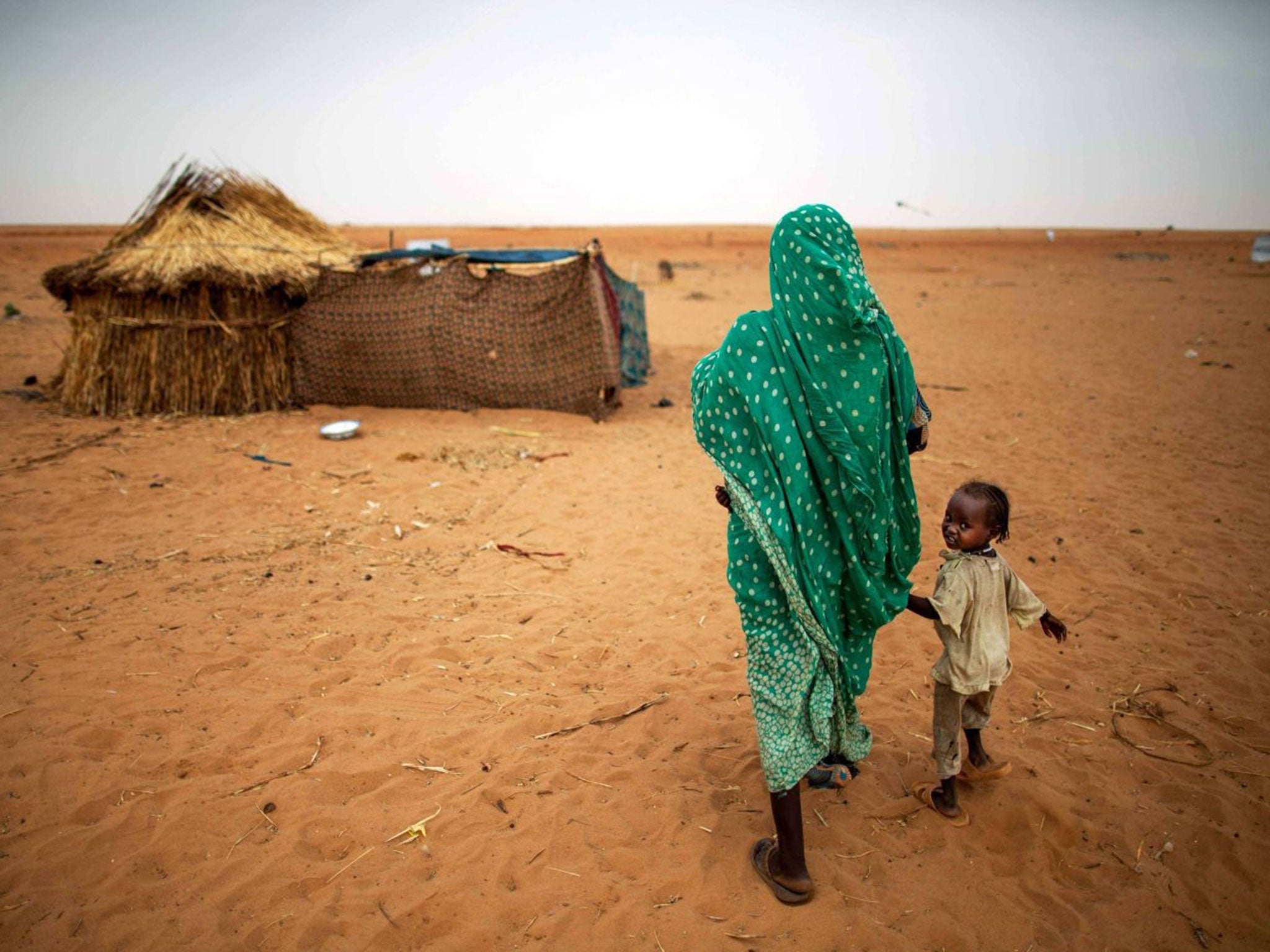Is Britain not bothered about raped children in Darfur?
Eight years ago, David Cameron said: 'We cannot remain silent in the face of this horror'

Your support helps us to tell the story
From reproductive rights to climate change to Big Tech, The Independent is on the ground when the story is developing. Whether it's investigating the financials of Elon Musk's pro-Trump PAC or producing our latest documentary, 'The A Word', which shines a light on the American women fighting for reproductive rights, we know how important it is to parse out the facts from the messaging.
At such a critical moment in US history, we need reporters on the ground. Your donation allows us to keep sending journalists to speak to both sides of the story.
The Independent is trusted by Americans across the entire political spectrum. And unlike many other quality news outlets, we choose not to lock Americans out of our reporting and analysis with paywalls. We believe quality journalism should be available to everyone, paid for by those who can afford it.
Your support makes all the difference.On 31 October, when most of our children were playing trick or treat, 200 women and girls (as young as seven) in Darfur were raped. According to locals, the perpetrators were the Sudanese Armed Forces. One month later, the victims of this egregious assault are no closer to justice.
Rape has been a weapon of war in Darfur for decades. The attack in the village of Tabit, however, is on an unprecedented scale. Despite numerous sources verifying it, the discredited hybrid United Nations/African Union force (Unamid) issued a press release that claimed: "None of those interviewed confirmed that any incident of rape took place in Tabit." What the release didn't say is that, according to a Unamid officer, military personnel accompanied the Unamid delegation so, "no one could speak freely".
Unamid's chicanery emerges at the same time as a UN investigation exonerated the force of previous allegations of cover-up. Despite finding instances in which Unamid officials withheld evidence indicating the culpability of Sudanese government forces in crimes against civilians and peacekeepers, UN Secretary General Ban Ki-moon concluded: "There was no evidence to support the allegation that Unamid intentionally sought to cover up crimes against civilians."
To the uninitiated, withholding evidence of crimes against civilians may sound like a cover-up. But in UN land, unless the scandalous event was the result of an intentional cover-up, and you can prove it, it doesn't count.
Where is the UK in all this? Instead of calling for an independent investigation into the mass rape in Tabit at the time, our government diverted attention away from it. Issuing a press release about food vouchers for displaced people in Darfur (440,000 beneficiaries over seven months) was, in my view, an act of either wilful obfuscation or gross ineptitude.
The cash/vouchers have been in place since 2011, but there's no evidence that I could find that anyone other than the government of Sudan benefits from the UK's £11m contribution. A local UN official told me he was unaware of the scheme. The three million Darfuris living in camps want reinstatement of the humanitarian organisations expelled by the genocidal regime in 2009. Not gimmicks.
Eight years ago, having visited Darfur, David Cameron said: "This is ethnic cleansing and we cannot remain silent in the face of this horror." He knows rape is a weapon of war and that mass rape constitutes a war crime. He is therefore obliged under international law to ensure that the perpetrators in Tabit are held to account. Ban Ki-moon once said: "When you witness violence against women and girls, do not sit back. Act." Here's Ban and Cameron's chance to put those laudable words into action.
Tess Finch-Lees is a specialist in ethics, discrimination and human rights
Join our commenting forum
Join thought-provoking conversations, follow other Independent readers and see their replies
Comments